General Incorporated Association AOH
General Incorporated Association AOH, one of 2018 FIT for Charity Run beneficiary non-profit organisations, provides employment opportunities to people with disabilities in order to gain economic security to live more independently. It operates CHOCOLABO, which provides welfare work for people with disabilities, and a bean to bar chocolate factory and shop CHOCOLABOU, which provides work under the Labour Standards Act for people with disabilities. We met with Mr. Noriyuki Ito, Representative Director of General Incorporated Association AOH, to hear about his story.
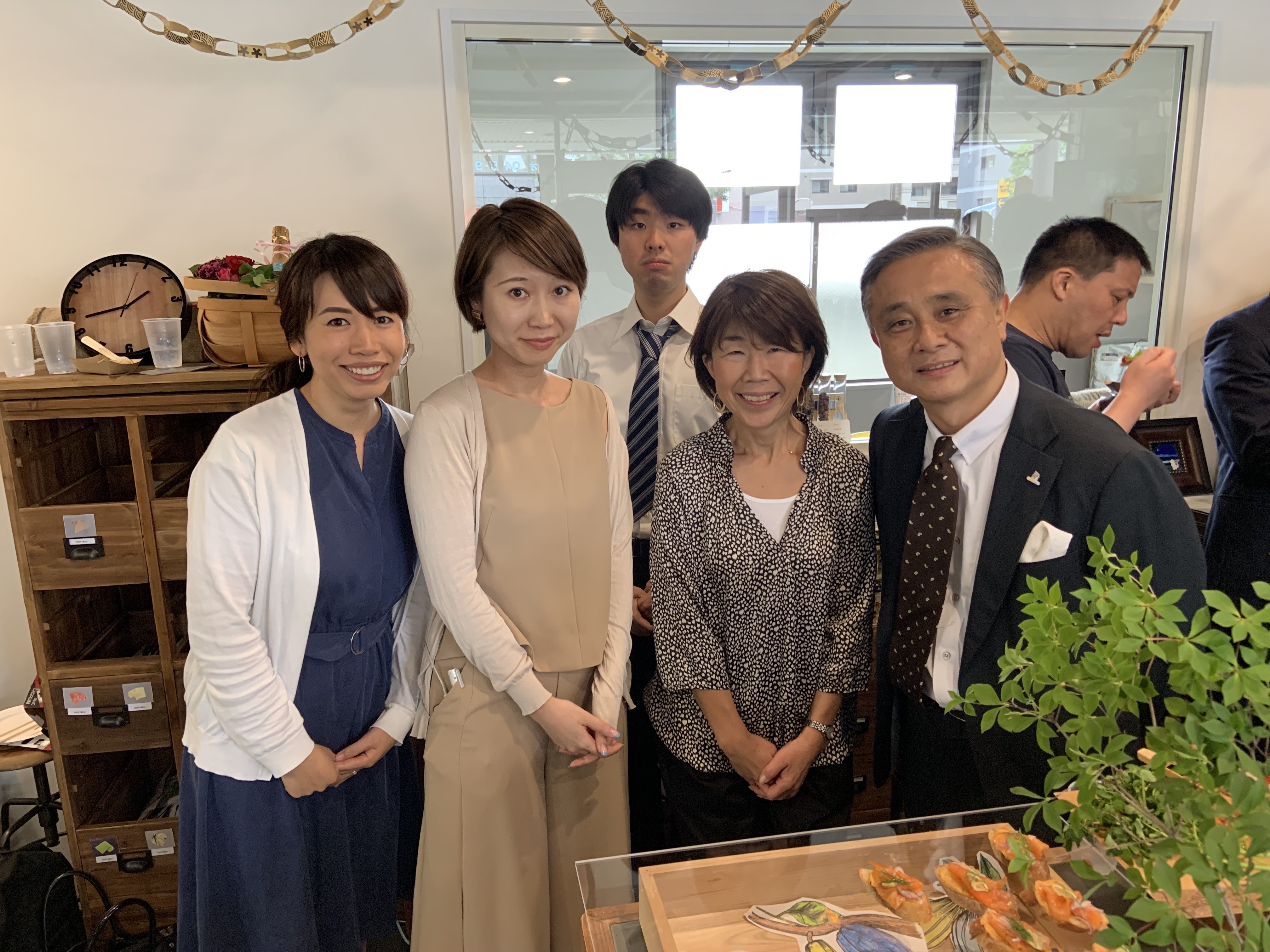
Pictured from left to right: Akiko Sagawa and Yuki Nishiyama (both FIT Communications Team), Mr. Hideyuki Katano (employee of CHOCOLABOU), Tomoko Tashiro (FIT Communications Team), Mr. Noriyuki Ito (Representative Director of General Incorporated Association AOH), and Mr. Satoshi Miyata (employee of CHOCOLABOU).
FIT: Please introduce yourself.
Ito: I’m Noriyuki Ito, Representative Director of General Incorporated Association AOH (“AOH”). I used to work as a banker, then I worked for a Japanese and a foreign credit rating company, then quit my job and started my own real estate business. In 2012, 10 years after I started the real estate business, I founded AOH and started a chocolate manufacturing and sales business. In 2019, I founded K.K. CHOCOLABOU, a bean to bar chocolate factory.
FIT: Please tell us why you started AOH.
Ito: My child was born with a disability but as he grew older, I was hit with the reality of the extremely limited employment opportunities for people with disabilities. Even if they are able to find employment, their monthly salary was about 10,000 yen. This is a monthly salary, not a daily salary. Statistics show that there are about 9.4 million people with disabilities in this country. According to the statistics of Ministry of Health, Labour and Welfare, about 530,000 people with disabilities are employed under the Labour Standards Act, which enforces the minimum wage. In other words, only about 5% of people with disabilities work under the Labour Standards Act with a minimum wage. 95% of people with disabilities stay at home, work as welfare workers, or don't even show up in the statistics. (On a working population basis, the ratio may be a little higher.)
The Labour Standards Act does not apply to welfare work, which means that welfare workers will get wages in the form of “work wages”. As you might know, the minimum wage in Tokyo is about 1,000 yen, but the hourly wage of disabled people working for welfare is less than 200 yen, which is about 15,000 yen a month. When I first learned about this reality, I was very concerned about my son's future and thought that I had to leave him with enough money. So I changed my job from a Japanese rating company to a foreign company and worked very hard. Of course, I was happy to be working as an analyst, and it's also true that I wanted to improve my skills as an analyst as well.
In January 2002, while I was working hard to save money for my son, I read the article series, ”My Resume,” in the Nikkei Newspaper, written by Mr. Masao Ogura, who served as President and Chairman of Yamato Transport Co., Ltd.,. Upon reading his articles, I changed my mind 180 degrees. Mr. Ogura donated most of his personal assets to welfare programs in his later years, and he tackled the issue of employment for people with disabilities. Knowing that gave me an opportunity to think about if there was anything I could do to change the fact that the average monthly wage for people with disabilities was 10,000 yen.
I myself worked for a foreign financial institution, and from the public's point of view, I was working in a favorable environment. If I continued working in that environment, I would have been able to leave enough money for my son and my family. However, I thought deeply about whether it was enough to only be providing happiness for my family. I felt like I was a follower of Hinayana Buddhism. I prayed only for the happiness of my family. On the other hand, Mr. Ogura was a follower of Mahayana Buddhism. He prayed for the happiness of the world. I strongly felt the need to provide for the local community and society, and decided to create secure and stable employment opportunities for people with disabilities.
However, I only had experience working for financial institutions, so I didn’t have confidence to quit my job and create jobs for people with disabilities. I thought about it for half a year and consulted many people. They all said, “You should work as a stable salaried worker in the private sector for the sake of your child” and “keep working in the private sector and do some volunteer work after leaving a certain amount of asset to your child.” They understood my feelings, but they believed that it “wasn’t the right order.” However, I was already feeling the urge to try and thought ”I only have one life to live, so I should try what I want to do.” When I consulted my wife, she said, “if that is what you want to do, you should give it a try” and supported my decision.
In November 2002, I started a real estate company using the qualifications I got while I was a banker. Over the next 10 years, I worked to build a financial foundation to launch a business that will provide employment for people with disabilities. In exactly 10 years, in November 2012, I started CHOCOLABO, a welfare office in Yokohama. In July 2019, with the support of many people, including FIT For Charity Run, we were able to establish CHOCOLABOU.
Making chocolate is a craftsman's work, so it is difficult for a person with disabilities to do all of the various processes alone. However, if they can become specialised in one of the processes, such as peeling the cacao, even with severe disabilities, they can participate in the production process. I also came up with a scheme of importing products directly from the country of origin through fair trade, having people with disabilities process them with care, producing high-value-added products that reach many people, and as a result increasing the wages of the people with disabilities. I want to raise the wages of welfare workers so that they can make enough money to continue living when their parents pass away.
FIT: Why did you decide on manufacturing chocolate? Did you always believe that chocolate was the best business line?
Ito: To put it simply, I decided to manufacture chocolate because I love chocolate, that’s all. Of course it took me almost four years to decide on the business. My motivation for starting the business was to provide stable employment opportunities for people with disabilities. Therefore, in order to continue the business, the main premise was to build a stable foundation, and increasing sales was always second. In order to secure permanent employment for the people with disabilities, systems and foundations must be in place.
At the initial planning stage, I was thinking that we will need to prepare for some degree of inefficiency when working with people with disabilities. Therefore, I thought that in order for the business to continue with the inefficiency, it needs to have high profit margin, such as cosmetics, or products made from flour, like monjayaki and udon. Since I was working as an analyst, I carefully considered everything, applying various analysis methods using Excel, like SWOT analysis and Monte Carlo simulation. Building a business requires courage. I brainstormed about it for about four years and finally decided on chocolate because of the words and advice of the following two business people.
The first person is someone I met through a friend. He started working when he was 18 years old and now running several businesses. He is very successful as a businessperson and has taken several of his businesses public. When I asked him about providing stable employment opportunities for people with disabilities, he said, “If you don't have anything particular that you want to focus on, and if you were to just focus on achieving that objective (of providing stable employment opportunities to people with disabilities), I would not choose to do business in the service industry. If I were you, I would choose to do business in the manufacturing industry, which has nothing to do with appearances, like the interior of a restaurant or a shop. In other words, if you set up a shop and run a business, you will have to pay for the rights to open a store, interior decoration fees, and monthly salaries to employees. After subtracting all the expenses, only the remaining amount can be used for your own purposes. Hearing his words, I came to understand how entrepreneurs think. Because I had been a banker, an analyst, and a real estate agent, and was heavily involved in the service industry, the idea of doing business in the manufacturing industry was so new to me that I didn't even think of it.
The second person was Mr. Miki Watanabe of Watami, who said, "Every business that created using my head failed, but every business that I used my heart succeeded.” When Mr. Watanabe was a student, he visited a bar in New York, and he was so impressed that everyone, regardless of race or wealth, enjoying a drink while listening to music, that he decided to "make everyone happy with Izakaya." A week after I heard that story, I went to a cute chocolate shop with my family of three. My wife said, “Why don’t you start a chocolate business since you love chocolate so much?" That is the reason why I decided to manufacture chocolate. As I mentioned earlier, I considered several businesses using various analysis methods, but I could not decide on a business. I kept thinking about it in my head and was not listening to my heart. In the end, "chocolate" was what I felt in my heart.
FIT: Did it go well after you decided to manufacture chocolates and started the business?
Ito: Before starting CHOCOLABO, I was a self-employed real estate agent. I was working day and night and on weekends too, so that was very hard in itself. It was easy to imagine that it would be even harder to start something new with people with disabilities. However, when I started the business, the people around me were extremely supportive. I started CHOCOLABO because of motivations that felt good to me, like "because I like chocolate" and "because I want to create jobs for people with disabilities." Do business, not by following the hypotheses you have in your minds, but because it is something that you really want to do. I don’t have a choice to quit, but if I didn’t love what I do, I may have wanted to quit and run away. Something I learned while doing this business is, when the motivation comes from a good place, it creates a positive cycle, and people understand what you are trying to do.
If I had not listened to my heart and started my business focusing solely on business strategies, people may have viewed the business as "well, let's see how it goes" and a positive cycle would not have been created. Because of the support from the people around us, we were in the black from the second term and we have been in the black for seven consecutive years since 2012. I am deeply moved by the establishment of CHOCOLABOU (ショコラ房), 17 years after I decided to resign from my company.
FIT: Was the donation from FIT used to fund the opening of CHOCOLABOU?
Ito: Yes, that is right. At CHOCOLABOU, the entire process of importing, fermenting, and roasting the raw materials is carried out in this building, a bean to bar factory where people with disabilities can create higher value-added products. We were able to commit to the realisation of this chocolate factory when we received information about receiving the donations from FIT and we are very grateful to everyone who support FIT because of that. CHOCOLABOU is connected to a chocolate shop and visitors can also see the bean to bar factory, so it would be great if everyone who participated in FIT can come visit us! I also hope that more people will know that there is such a place.
FIT: How does CHOCOLABOU differentiate itself from CHOCOLABO?
Ito: Unlike CHOCOLABO, which is an employment support facility, CHOCOLABOU is a joint-stock company, which requires people with disabilities to work under the Labour Standards Act. I don't think there is a difference between working for welfare and working under the Labour Standards Act. One is not “higher” than the other. Some people with disabilities struggle just to get up, yet they fight to live every day. Some people with severe mental disability feel pressure when expected to work so much. We believe that it is important to provide a place where people with disabilities can make best use of their characteristics. For those who do not want to work under the Labour Standards Act, we provide welfare employment at CHOCOLABO, where they can work at their own pace. If they are feeling positive towards working and want to work more, we provide employment at CHOCOLABOU. In this way, we think of employment very flexibly. Moreover, in terms of the operations, by becoming a joint-stock company, we can expect sustainable growth and stabilisation of the working environment for people with disabilities.
FIT: Please tell us about the future prospect.
Ito: I have been thinking about three phases since I started CHOCOLABO as a general incorporated association. Phase 1 is the first few years after starting with no knowledge, experience, network, or brand. Starting from zero, we focused on establishing welfare employment, gradually created awareness of the CHOCOLABO brand, and creating a system to operate a sustainable chocolate factory while receiving subsidies. In Phase 2, we will collaborate with companies and local governments as a social firm and operate business with awareness towards employing people with disabilities. In Phase 3, we intend to provide more employment opportunities for people who want to work for K.K. CHOCOLABOU and to work under the Labor Standards Act. In order to do so, we believe that it is important to establish as a strong social firm during the six years of Phase 2.
Our most important stakeholders are our employees, followed by their families, business partners, local communities, and shareholders. It may seem that the order of importance is reversed, or inside-out, from an ordinary stock company, but we are always thinking about the happiness of the people who are closest to us and need the opportunity most when doing business.
■Please visit General Incorporated Association AOH website for more information: https://chocolabo.or.jp/
■More information regarding CHOCOLABO and CHOCOLABOU:
https://chocolabo.or.jp/shop
https://chocolabo.handcrafted.jp/
Pictures are from the opening party of CHOCOLABOU held on July 8th, 2019.
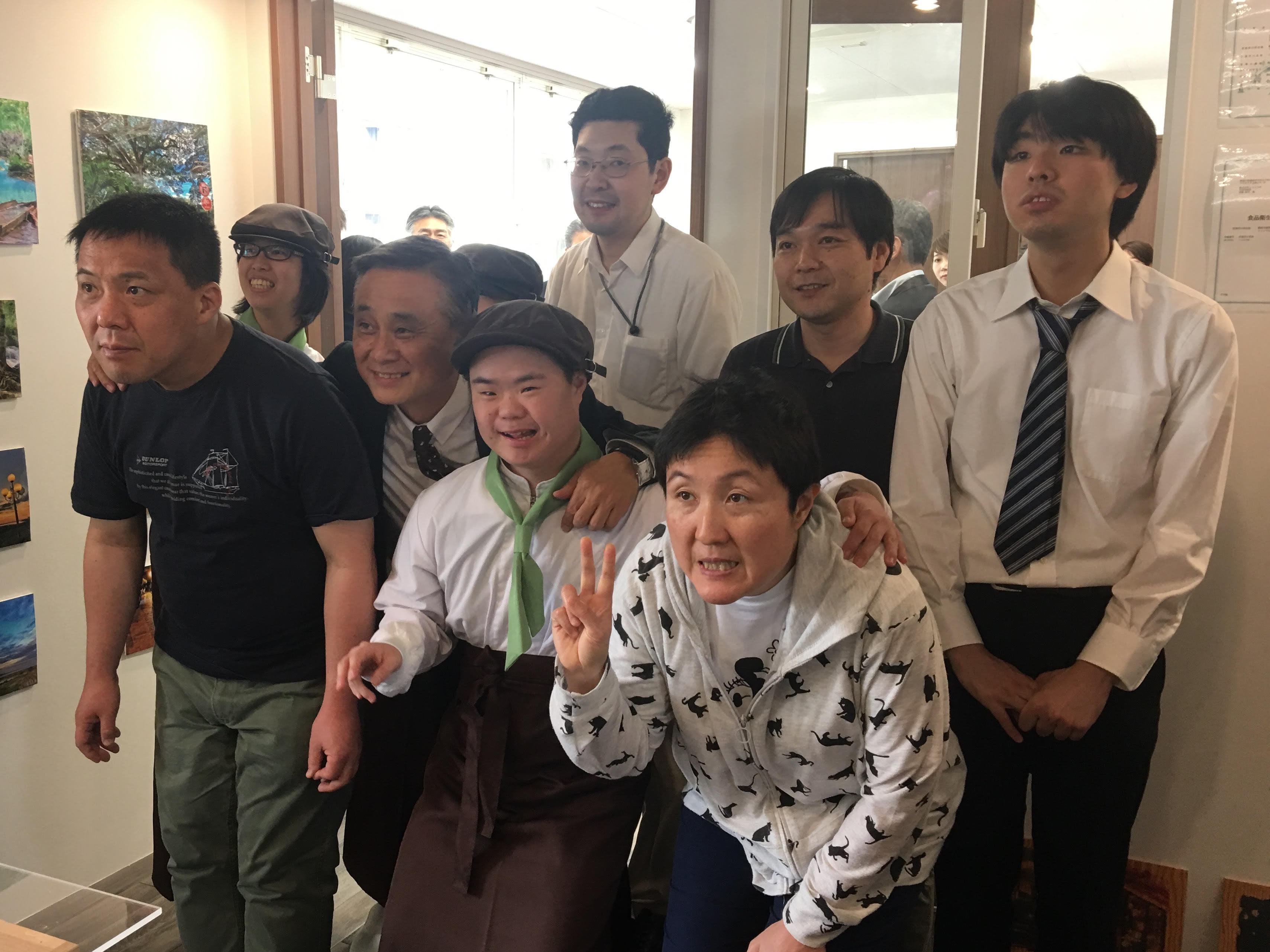
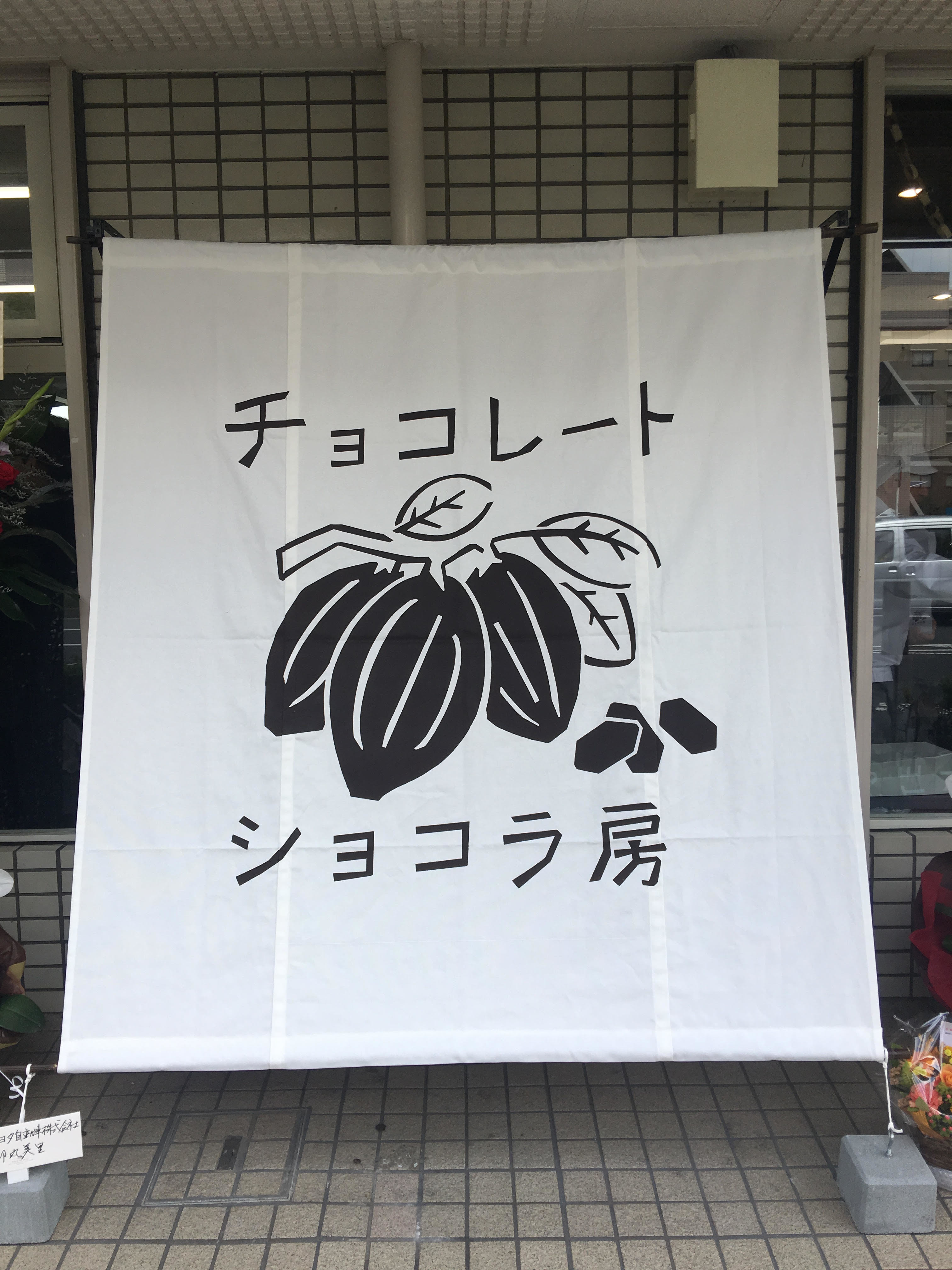
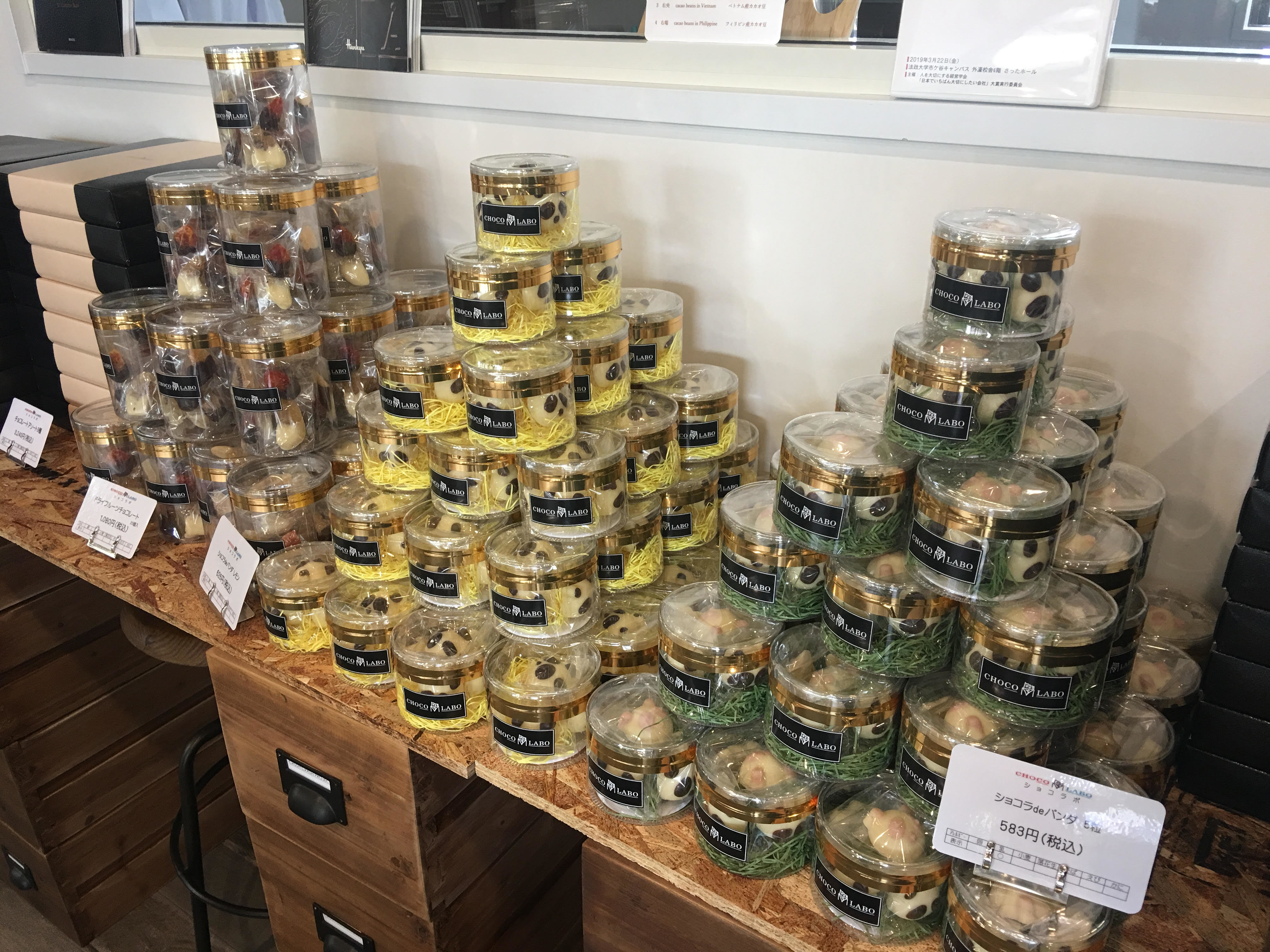
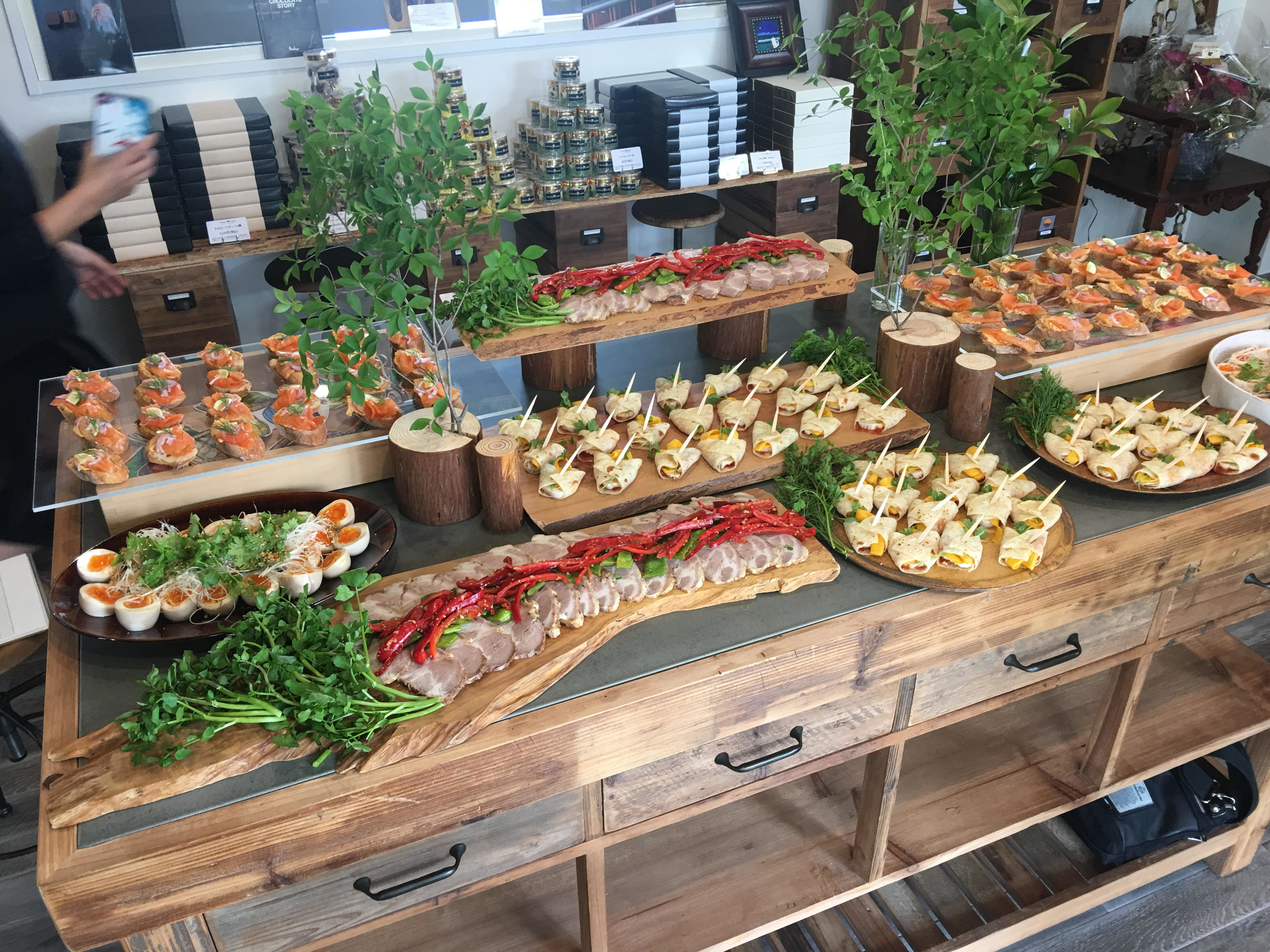
The finger foods for the opening party of CHOCOLABOU was prepared by Ms. Satoko Kobiyama, of Yama Foods.

